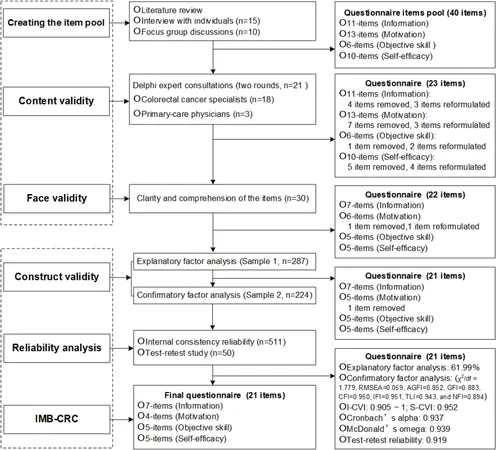
Revolutionizing Colorectal Cancer Prevention: New Questionnaire Unveiled for High-Risk Populations
2025-04-12
Author: Siti
Colorectal Cancer: A Silent Epidemic
Colorectal cancer (CRC) is alarmingly prevalent and accounts for a staggering number of cancer-related deaths globally. In 2022 alone, nearly 1.9 million people were diagnosed, leading to approximately 900,000 fatalities. The rate is particularly concerning in China, where the annual count of new cases has skyrocketed to 517,000, resulting in almost 240,000 deaths. CRC not only affects individual lives but also burdens families and healthcare systems, highlighting the urgent need for preventive measures.
The Importance of Prevention in High-Risk Groups
Individuals with a family history of CRC or previous adenomatous polyps are at a significantly higher risk—two to three times more likely to develop CRC than the general public. In fact, between 5% to 70% of patients with polyps may eventually develop colorectal cancer. Early prevention strategies are not only easier and more economical than invasive treatments like chemotherapy and surgery, but they also enhance survival rates and improve quality of life. Thus, promoting awareness and adoption of healthy lifestyles among high-risk individuals is vital.
Behavioral Solutions for Prevention
Effective preventive behaviors such as consuming a balanced diet, exercising, maintaining a healthy weight, quitting smoking, and limiting alcohol can prevent 20% to 70% of CRC cases. For instance, studies show that engaging in regular physical activity can lower the risk of CRC by 15%, whereas sedentary behavior correlates with an 8% increase in risk for every additional two hours spent sitting. However, knowledge about these behaviors within high-risk groups remains alarmingly low.
Introducing the IMB-CRC Questionnaire
To tackle this issue, researchers have developed the **Information-Motivation-Behavioral Skills for Colorectal Cancer Prevention Questionnaire (IMB-CRC)** specifically for high-risk populations in China. Grounded in the IMB model, which emphasizes the interplay between information, motivation, and behavioral skills, the tool assesses factors influencing CRC prevention behaviors.
How the Questionnaire Works
This newly validated questionnaire employs a comprehensive framework. It includes sections on awareness of CRC information, objective skills for prevention, self-efficacy, and motivation. Utilizing exploratory and confirmatory factor analyses, researchers confirmed that the tool effectively measures these dimensions with high reliability. Notably, participants provided insights that further refined the questionnaire, ensuring it resonates with the cultural context of Chinese individuals.
Implications for Public Health
The IMB-CRC can serve as a crucial resource for healthcare providers and policymakers. By pinpointing knowledge gaps and motivational deficits, it facilitates the development of tailored educational programs aimed at promoting CRC prevention behaviors. Furthermore, this tool encourages a shift toward more proactive health management practices among those in high-risk categories.
Future Perspectives: Building on This Foundation
While the IMB-CRC represents a significant advancement in tailored health assessments for high-risk individuals, continuous research is necessary to enhance its efficacy across diverse populations. Expanding beyond Northeast China and incorporating a wide array of demographics will ensure that the fight against colorectal cancer evolves with the needs of all individuals.
Join the Movement: Take Action Against Colorectal Cancer
As the awareness of colorectal cancer grows, so should the commitment to prevention. The IMB-CRC questionnaire is not just a tool; it’s an invitation to rethink our approach to health—empowering high-risk populations with the knowledge and skills needed to take charge of their well-being.



 Brasil (PT)
Brasil (PT)
 Canada (EN)
Canada (EN)
 Chile (ES)
Chile (ES)
 Česko (CS)
Česko (CS)
 대한민국 (KO)
대한민국 (KO)
 España (ES)
España (ES)
 France (FR)
France (FR)
 Hong Kong (EN)
Hong Kong (EN)
 Italia (IT)
Italia (IT)
 日本 (JA)
日本 (JA)
 Magyarország (HU)
Magyarország (HU)
 Norge (NO)
Norge (NO)
 Polska (PL)
Polska (PL)
 Schweiz (DE)
Schweiz (DE)
 Singapore (EN)
Singapore (EN)
 Sverige (SV)
Sverige (SV)
 Suomi (FI)
Suomi (FI)
 Türkiye (TR)
Türkiye (TR)
 الإمارات العربية المتحدة (AR)
الإمارات العربية المتحدة (AR)